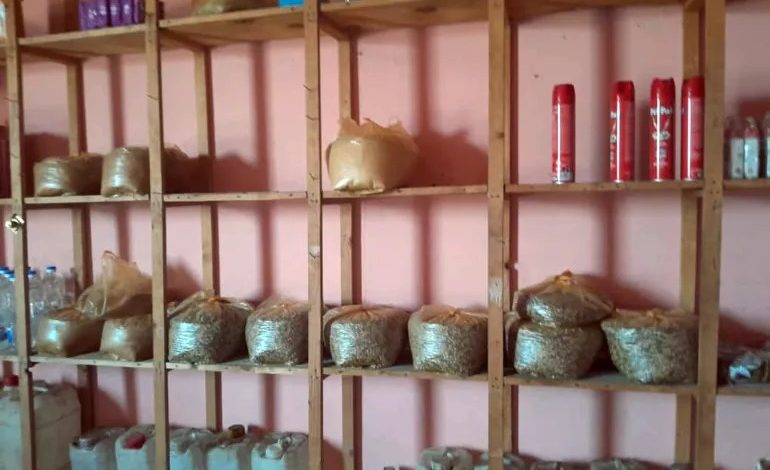El Fasher Residents Spend Eid al-Adha Amid Shelling, Siege, and Food Shortages

Sudan Events – Agencies
While Muslims around the world celebrate Eid al-Adha, residents of El Fasher in western Sudan are enduring a tragic reality, as the holiday has lost its meaning amid a suffocating siege and a severe lack of basic supplies.
For the third consecutive year, markets have remained closed due to shelling and destruction. Shops selling essential items have disappeared, and families now struggle to secure food and medicine—let alone holiday necessities that once brought a glimmer of hope during difficult times.
Since April, the Rapid Support Forces (RSF) have imposed a strict siege on the city in an attempt to take control of it. This has made daily life increasingly unbearable for residents, who are now unable to move freely or access basic supplies from other areas.
A Grim Reality
In the latest field developments, sources told Al Jazeera Net that RSF launched heavy artillery shelling on El Fasher on the first day of Eid al-Adha, killing at least four people and injuring three others.
According to the El Fasher Resistance Committees, the city came under bombardment early in the morning, with residential neighborhoods directly targeted. In a Facebook post, the committee stated, “Despite the harsh conditions, the hearts of El Fasher’s people remain lifted to the sky, praying amid the roar of cannons.”
Citizen Fathi Suleiman told Al Jazeera Net: “Eid used to be a day full of joy and gatherings, but it has now become just another day of struggling to survive.”
He added, “Death is everywhere. There’s no meat, no new clothes for children, no celebrations. Even the Eid prayers were not held in public squares as usual.” He continued, “Ongoing artillery fire has deprived us of visiting each other. All we can do now is remain inside the shelters, waiting for the unknown.”
Displaced woman Suad al-Fatih said: “All my son wants is for the shelling to stop and to have new clothes for Eid—but I have nothing to give him.” She asked, “How do I explain to a small child that Eid is no longer the same? Poverty is chasing us everywhere, and prices are skyrocketing because of the siege.”
She added in her interview with Al Jazeera Net: “We rely on communal kitchens and food charities to survive. Every day I go to the communal kitchen, where we try together to secure a meal—but even that is becoming difficult.”
Supportive Initiatives
Amid these dire circumstances, humanitarian initiatives have emerged as a glimmer of hope. Mohyeddin Mokhtar, a member of the “Our Eid in El Fasher” initiative, told Al Jazeera Net that “Despite the continuous shelling, the initiative managed to distribute 100 sacrificial sheep to communal kitchens and shelters during the first day of Eid.”
Mokhtar explained that each sheep costs between 700,000 to 800,000 Sudanese pounds (about $400), and noted that the project is heavily supported by businessman Abdel Hakim Mamour.
He added, “We must fight to save our people and their joy. In such times, communities need to unite and rely on the generosity of the good-hearted to bring hope to people’s hearts.”
Merchants in Distress
With markets shuttered and resources scarce, some residents have resorted to sharing what little they have, while others are making do with the bare minimum. Food and medical supplies are nearly completely cut off.
The impact of the siege has not been limited to residents alone—it has also severely affected merchants, many of whom have found themselves with limited options to keep their businesses afloat. Stores have closed, and shop owners have moved to relatively safer residential neighborhoods and shelters to sell what remains of their goods.
Dr. Mohamed Suleiman, a former social science researcher who has now become a merchant, told Al Jazeera Net: “I had no choice but to seek an income to survive. I used to work in the Ministry of Health and study social crises—now I’m living them daily.”
He added: “All the merchants closed their shops due to the shelling, lack of supplies, and absence of customers. It’s become pointless to keep the doors open.”
In this context, merchant Ahmed Jumaa said: “The situation has become catastrophic. I used to sell my products in the market, but now I have to rely on the few customers who can reach me. The shelling makes it hard for people to leave their homes.” He added, “I’m trying to survive, but hope is beginning to fade.”
Government Effort
Amid the severe humanitarian crisis in El Fasher, the state government has launched a new initiative aimed at easing the burden on citizens by providing direct cash assistance to families through community steering committees in neighborhoods and shelters.
In local statements, Dr. Abbas Youssef, Commissioner for Humanitarian Aid, said the initiative is worth 500 million Sudanese pounds (approximately $1.92 million) and will benefit 2,857 families within the city.
He explained that the initiative is supported by the federal Zakat Chamber and is aimed at helping vulnerable groups cope with the complex humanitarian conditions facing residents.
Issam Jarad, a government official and Director of Radio and Television in North Darfur, told Al Jazeera Net: “We are trying to provide the minimum requirements for a dignified life for citizens at a time when the city is facing complex challenges related to food security and shortages of basic supplies.” He called on all members of society to participate actively and raise awareness to ensure aid reaches the families most in need.



